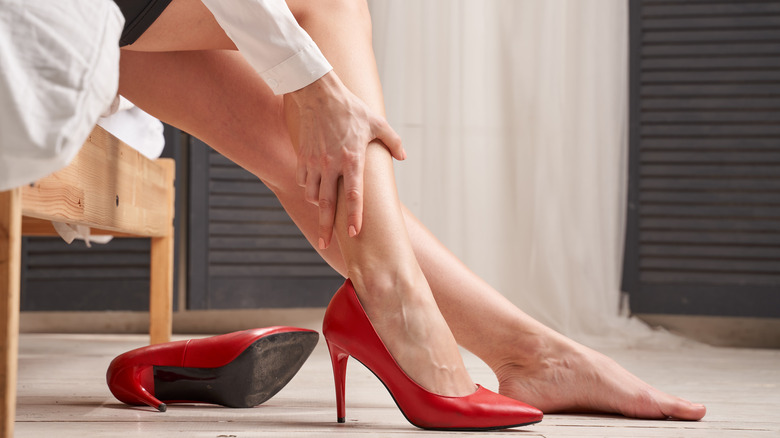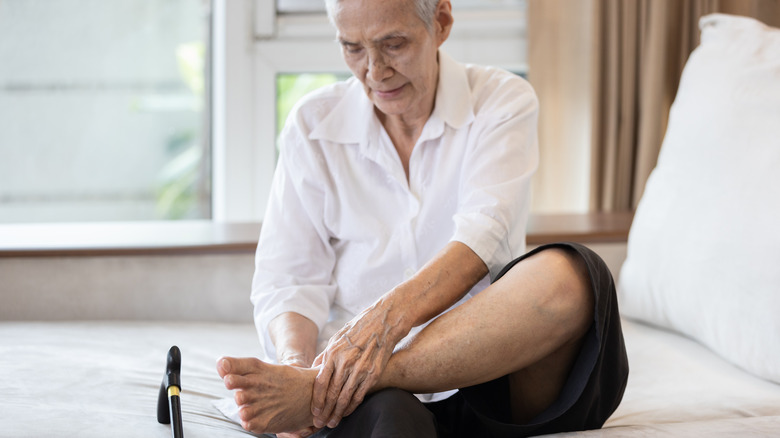What It Really Means When You Get Leg Cramps
It's happened to many people — a shooting pain in your leg jolts you awake. Known as a "charley horse," these involuntary muscle spasms may have you in great pain and wondering why you're experiencing sudden cramping.
These specific leg cramps typically occur in your calf, foot, or thigh, causing a tightening sensation that could affect the muscles in the area for hours after the cramps subside (via Cleveland Clinic). There are a variety of factors that can cause these leg cramps. Oftentimes, though, there is no real reason at all. These kinds of cramps are called "idiopathic" cramps. They may be caused by an abundance of high-intensity exercise, involuntary nerve discharges, blood supply restriction, and stress.
Some experts say muscle fatigue is the leading cause of cramps, especially when leg-heavy exercise is underway in hot weather (via Healthline). In these cases, it's important to drink plenty of water and rest when you are fatigued. Pregnant women can also experience muscle cramping day or night. Nighttime leg cramping can be caused by overuse during the day, sitting improperly for long periods of time, or standing or working on concrete floors, according to Cleveland Clinic.
What underlying conditions can cause leg cramping?
Although leg cramps are typically harmless, they can be an indication of a more serious medical condition in some cases. Addison's disease, alcohol use disorder, cirrhosis, kidney failure, Parkinson's disease, sarcoidosis, type 2 diabetes, and vascular disease are some medical conditions that can cause leg cramps, according to Healthline. Some medications can also contribute to leg cramping, including asthma medications, birth control, diuretics, naproxen, and statins.
So how can you get some relief from your leg cramps? Cleveland Clinic recommends these eight steps: Stretch, massage your muscles, stand up, walk while wiggling your leg, apply heat with a pad or bath, use ice to apply cold, elevate your leg, and take ibuprofen or acetaminophen if the pain won't subside.
You should seek medical attention if the leg cramp lasts longer than 10 minutes or if the pain is unbearable. Experts also recommend determining any possible underlying conditions that could cause the cramping.


